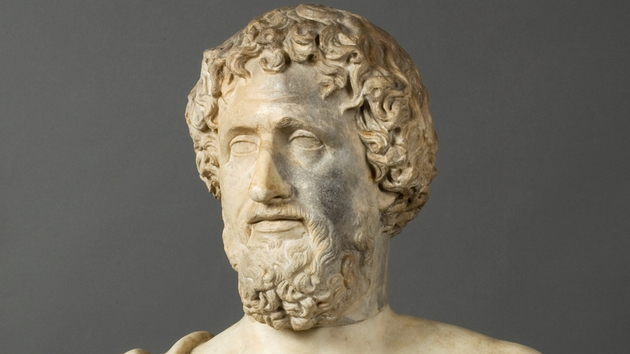The pre-Socratic philosophers are part of the first period of Greek philosophy. They developed their theories from the 7th to the 5th century BC, and are named after the philosophers who preceded Socrates.
These thinkers looked to nature for answers about the origin of being and the world. Focusing mainly on aspects of nature, they were called ” philosophers of physis ” or “philosophers of nature”.
They were responsible for the transition from mythic to philosophical consciousness. Thus, they sought to give a rational explanation for the origin of all things.
Greek mythology explained the universe through cosmogony (cosmos, “universe” and gonos , “genesis”, “birth”). Cosmogony gives meaning to everything that exists through the idea of birth from a (sexual) relationship between the gods.
Pre-Socratic philosophers abandoned this idea and built cosmology , an explanation of the universe based on logos (“argumentation”, “logic”, “reason”). The gods gave way to nature in understanding the origin of things.
The philosophy born with these first philosophers gave rise to a whole production of knowledge and representation of reality. All of this construction served as a basis for the development of Western culture.
Check below a list of the main philosophers of the pre-Socratic period.
1. Tales of Miletus
Born in the city of Miletus, region of Ionia, Tales of Miletus (624 BC – 548 BC) believed that water was the main element, that is, it was the essence of all things.
Everything is water.
2. Anaximander of Mileto
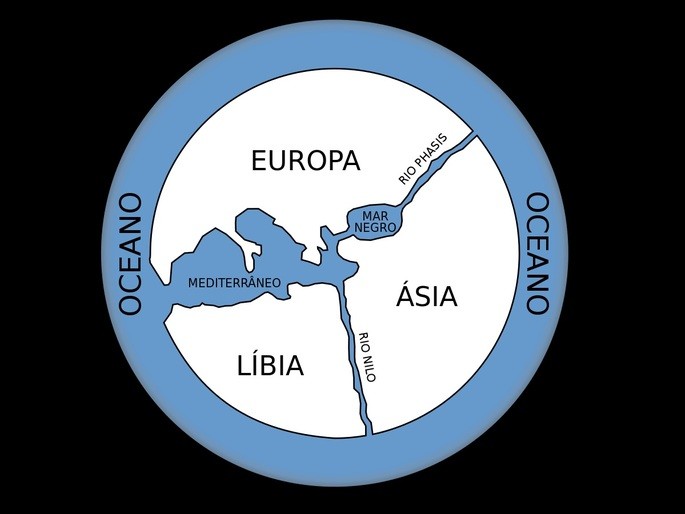
Disciple of Tales born in Miletus, for Anaximander (610 BC – 547 BC), the principle of everything was in the element called “ ápeiron ”, a kind of infinite matter.
Where things have their birth, there must also go to the bottom, as needed; for they must pay penance and be judged for their injustices, according to the order of time.
3. Miletus Anaxymes
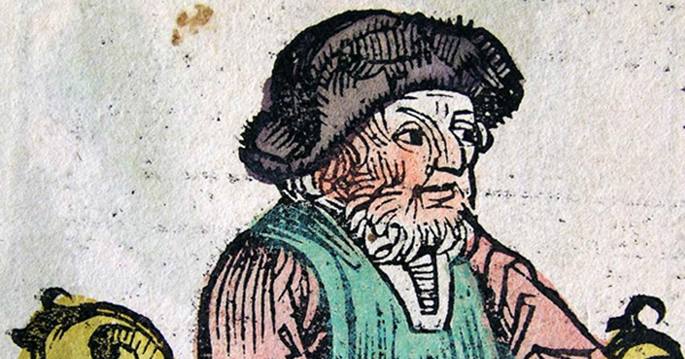
Disciple of Anaximander born in Miletus, for Anaxímenes (588 BC – 524 BC), the principle of all things was in the air element.
As our soul, which is air, holds us together, so does a spirit and air keep the whole world together; spirit and air mean the same thing.
4. Heraclitus of Ephesus

Considered the “Father of Dialectics”, Heraclitus (540 BC – 476 BC) was born in Ephesus and explored the idea of becoming (fluidity of things). For him, the principle of all things was contained in the element of fire.
Nothing is permanent, except change.
5. Pythagoras of Samos
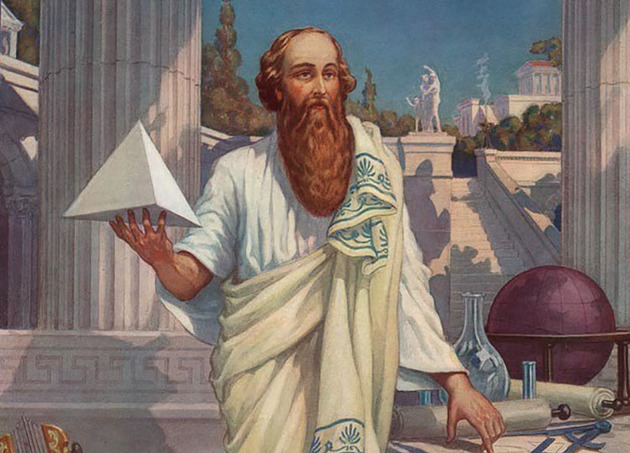
Philosopher and mathematician born in the city of Samos. Pythagoras (570 BC – 497 BC) states that numbers were his main elements of study and reflection, of which the “Pythagorean Theorem” stands out.
He was also responsible for calling “lovers of knowledge” those who sought rational explanations for reality, giving rise to the term philosophy (“love of knowledge”).
The universe is a harmony of opposites.
6. Colophon Xenophanes
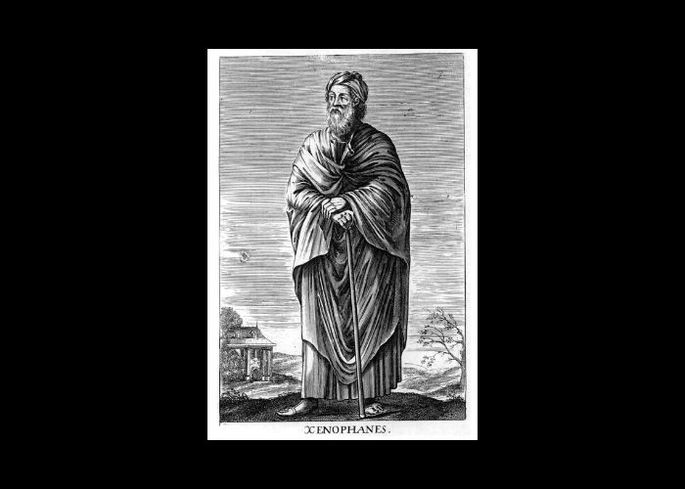
Born in Colophon, Xenophanes (570 BC – 475 BC) was one of the founders of the Escola Eleática, opposing mysticism in philosophy and anthropomorphism.
While eternal, the being is also unlimited, as it has no beginning from which it could be, nor an end, where it disappears.
7. Elm’s Parmenides
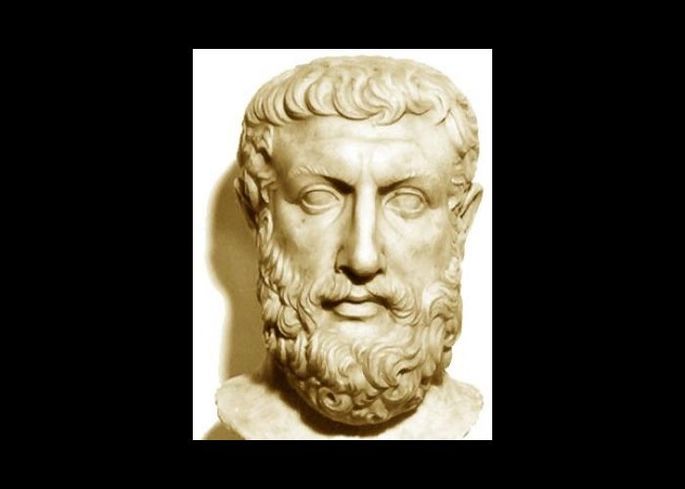
Disciple of Xenophanes, Parmenides (530 BC – 460 BC) was born in Eléia. He focused on the concepts of “ aletheia ” and “ doxa ”, where the first means the light of truth, and the second, is related to opinion.
Being is and non-being is not.
8. Zeno of Eléia
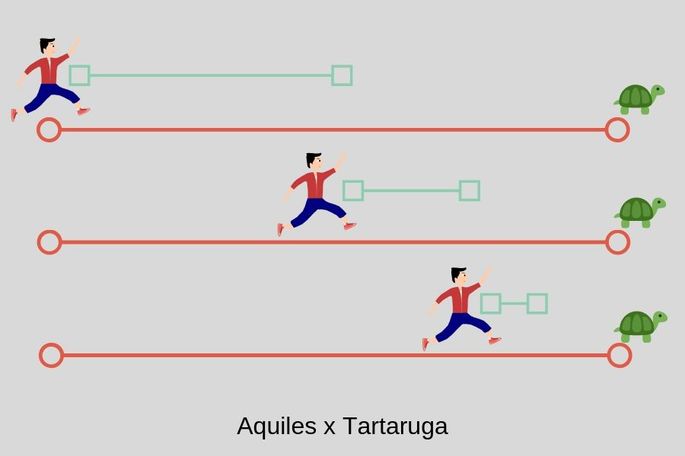
A disciple of Parmenides, Zeno (490 BC – 430 BC) was born in Eléia. He was a great defender of his master’s ideas, philosophizing, above all, about the concepts of “Dialectic” and “Paradox”.
What moves is always in the same place now.
9. Abdera’s Democritus

Born in the city of Abdera, Democritus (460 BC – 370 BC) was a disciple of Leucipo. For him, the atom (the indivisible) was the principle of all things, thus developing the “Atomic Theory”.
Nothing exists but atoms and emptiness.
Pre-Socratic Chains or Schools
According to the focus and place of development of philosophy, the pre-Socratic period is divided into Schools or Currents of thought, namely:
- Ionian School : developed in the Greek colony Ionia, in Asia Minor (present-day Turkey), its main representatives are: Tales of Miletus, Anaximens of Miletus, Anaximander of Miletus and Heraclitus of Ephesus.
- Pythagorean School : also called “Italic School”, it was developed in the south of Italy, and receives this name since its main representative was Pitágoras de Samos.
- Eleática School : developed in the south of Italy, being its main representatives: Xenophanes of Colophon, Parmenides of Elea and Zeno of Elea.
- Atomist School : also called “Atomism”, it was developed in the Thrace region, with its main representatives: Democritus of Abdera and Leucipo de Abdera.
End of Pre-Socratic Philosophy
Pre-Socratic philosophy comes to an end with the change of thought that focused on nature. With the intensification of public life, the philosophers’ attentions started to relate to public life and human activity.
This new period has the philosopher Socrates as a landmark of change and is also called the anthropological period of philosophy.
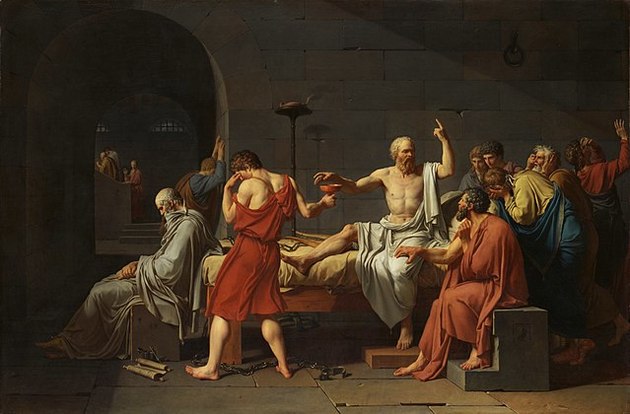
Socrates (470 BC-399 BC) was an important Greek philosopher who inaugurated the second period of Greek philosophy, the anthropological period. He was born in Athens and is considered to be one of the founders of Western philosophy.
Socrates’ philosophy, based on dialogue, was called Socratic philosophy. It was marked by the expression “ know yourself ”, due to the search for the truth through self-knowledge.
In addition, from the philosophy of “ dialogue ” by Socrates, “ maieutics ” stands out, which literally means “bringing light”. This is related to the illumination of the truth that, for him, is contained in the very being.
Periods of Greek Philosophy
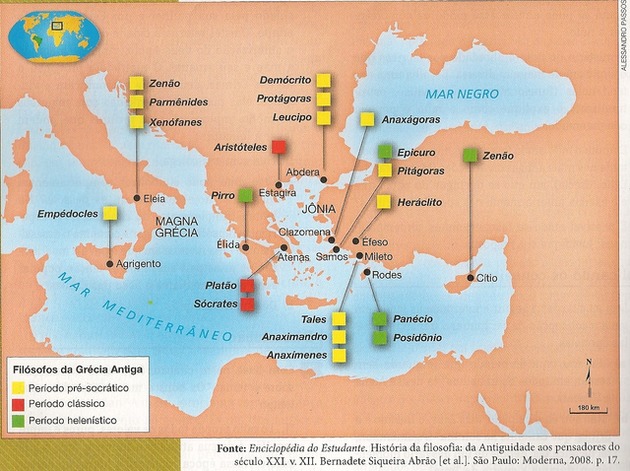
To better understand Greek philosophy , it is worth remembering how it is divided:
- Pre-Socratic Period : naturalist phase.
- Classic or Socratic Period : anthropological-metaphysical phase.
- Hellenistic period : ethical and skeptical phase.

